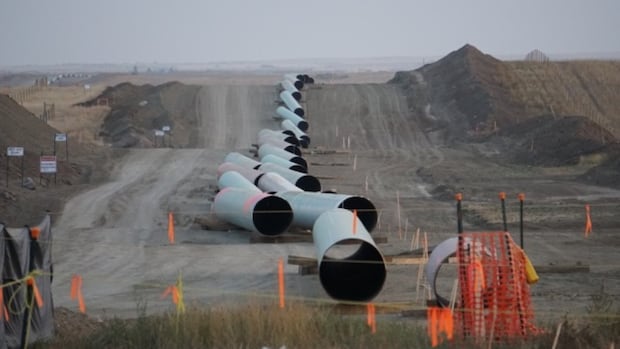Could the third time be the charm when it comes to the Keystone XL pipeline?
More than 15 years after it was initially proposed, and after U.S. presidents cancelled two earlier iterations, the pipeline project could be on the table once again — good news for some of its long-time political proponents.
At the same time, energy experts say the long-troubled project faces serious hurdles should it take on new life.
CBC News reported that Prime Minister Mark Carney raised the Keystone XL oil pipeline during conversations with U.S. President Donald Trump at the White House on Tuesday, according to a source with direct knowledge of the meeting. The U.S. president was receptive to the idea, the source said.
The project, which would have exported crude from Hardisty, Alta., to Nebraska, has a long and winding history of approvals and rejections. First cancelled by the Obama administration, Keystone was revived by U.S. President Donald Trump’s first administration in 2017 before being quashed again by the Biden administration in 2021.
South Bow, the TC Energy spinoff that now owns the Keystone Pipeline, said in a statement it was not privy to discussions between Canadian and U.S. officials about a possible revival.
“South Bow is supportive of efforts to find solutions that increase the transportation of Canadian crude oil. We will continue to explore opportunities that leverage our existing corridor with our customers and others in the industry,” the statement said.
That’s a departure from the company’s position earlier this year, when South Bow told the Canadian Press in February it had “moved on” from Keystone XL.
It would mark yet another resurgence of the long-troubled pipeline project, said Richard Masson, an executive fellow of University of Calgary’s School of Public Policy and former CEO of the Alberta Petroleum Marketing Commission.
“If it comes forward, it’s pretty amazing that it would come forward again, given the losses the last go-around,” he said.
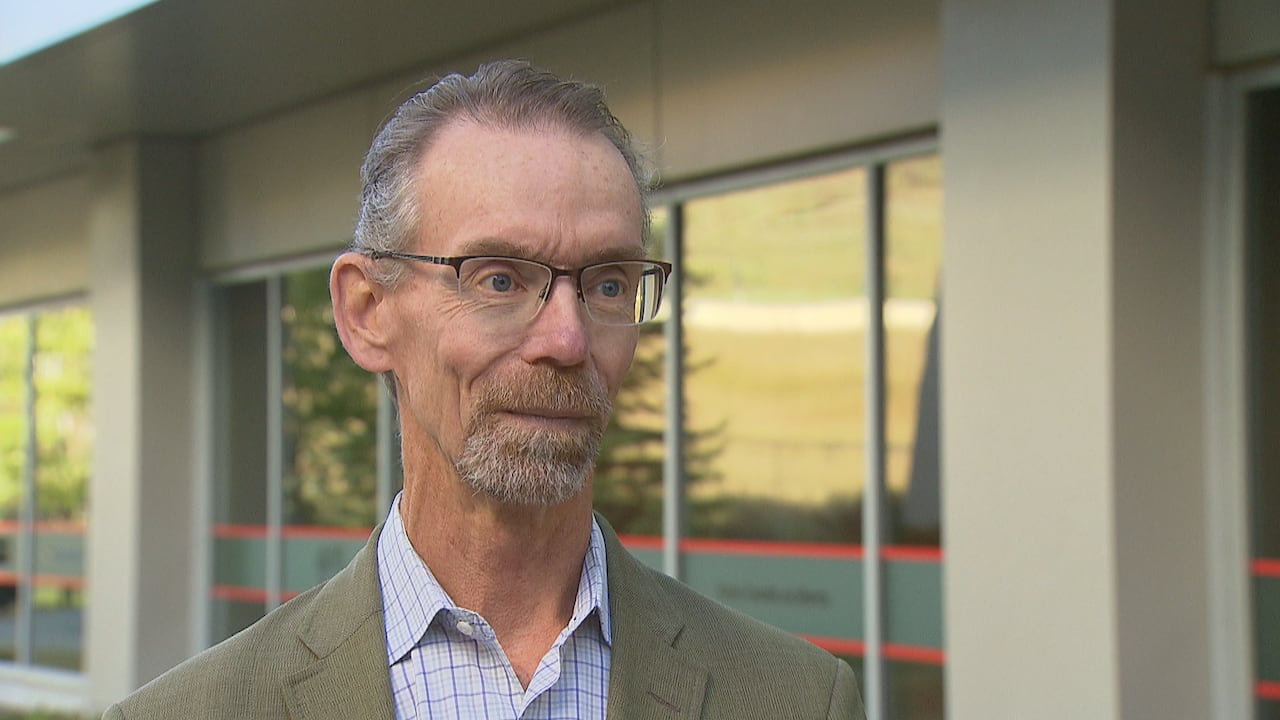 Richard Masson, an executive fellow of the University of Calgary’s School of Public Policy, said were the Keystone XL pipeline to emerge again, it would need to start from scratch as there is no current proponent, right of way, or pipeline in place. (Justin Pennell/CBC)
Richard Masson, an executive fellow of the University of Calgary’s School of Public Policy, said were the Keystone XL pipeline to emerge again, it would need to start from scratch as there is no current proponent, right of way, or pipeline in place. (Justin Pennell/CBC)
The Alberta government invested about $1.5 billion as equity in the Keystone XL pipeline in 2020. The final price tag put on Albertans was set at $1.3 billion.
Given that the U.S. has cancelled the pipeline twice, the only way Masson said he could see it happening would be if the U.S. government explicitly guaranteed money to see it developed.
“These things take four or five years to build, minimum. It might not be a Republican government in charge at that point. So, why would you get burned three times around on this?” Masson said.
“If the U.S. government said they want it, and I think it’s a good thing for those U.S. refineries … they should backstop it.”
Adam Legge, president of the Business Council of Alberta, agreed that any deal needs to be protected in order to get industry on board.
“Any movement on Keystone XL would have to be 100 per cent shielded from future cancellation by any proponent that would take that on,” he told CBC Radio’s Alberta at Noon.
“No one’s got the financial appetite or willingness to take that on if there isn’t going to be basically a bulletproof shield on completion of that project.”
Alberta has been lobbying in Washington, premier says
In recent months, the Alberta government has been vocal in its quest to pursue a new pipeline, announcing earlier this month its intention to submit a formal application to the federal Major Projects Office for a new bitumen pipeline to the northwest coast of British Columbia.
While much conversation has focused on mounting tensions between B.C. and Alberta over that plan, Alberta Premier Danielle Smith has also signalled her support for reviving the pipeline to the U.S. Midwest.
In February, Trump wrote on his Truth Social platform that the U.S. wanted “the Keystone XL Pipeline Built!”
“I was just thinking, that the company building the Keystone XL pipeline that was viciously jettisoned by the incompetent Biden Administration should come back to America, and get it built — NOW! I know they were treated very badly by Sleepy Joe Biden, but the Trump Administration is very different — Easy approvals, almost immediate start!” he wrote.
“Agreed, President Trump … that project should have never been cancelled,” Smith wrote on X the next day.
Speaking to reporters on Wednesday, Smith said she was pleased to see renewed conversation around Keystone elevated to such a level.
“I’ve been talking about this from the beginning, and I’ve been telling all my colleagues that as well. But we have been doing our own lobbying, as you know. We have an office in Washington,” Smith said.
“I spoke with Doug Burgum, even before he became secretary of the interior. We’ve had meetings about how we can work together to partner on building more egress to the United States.”
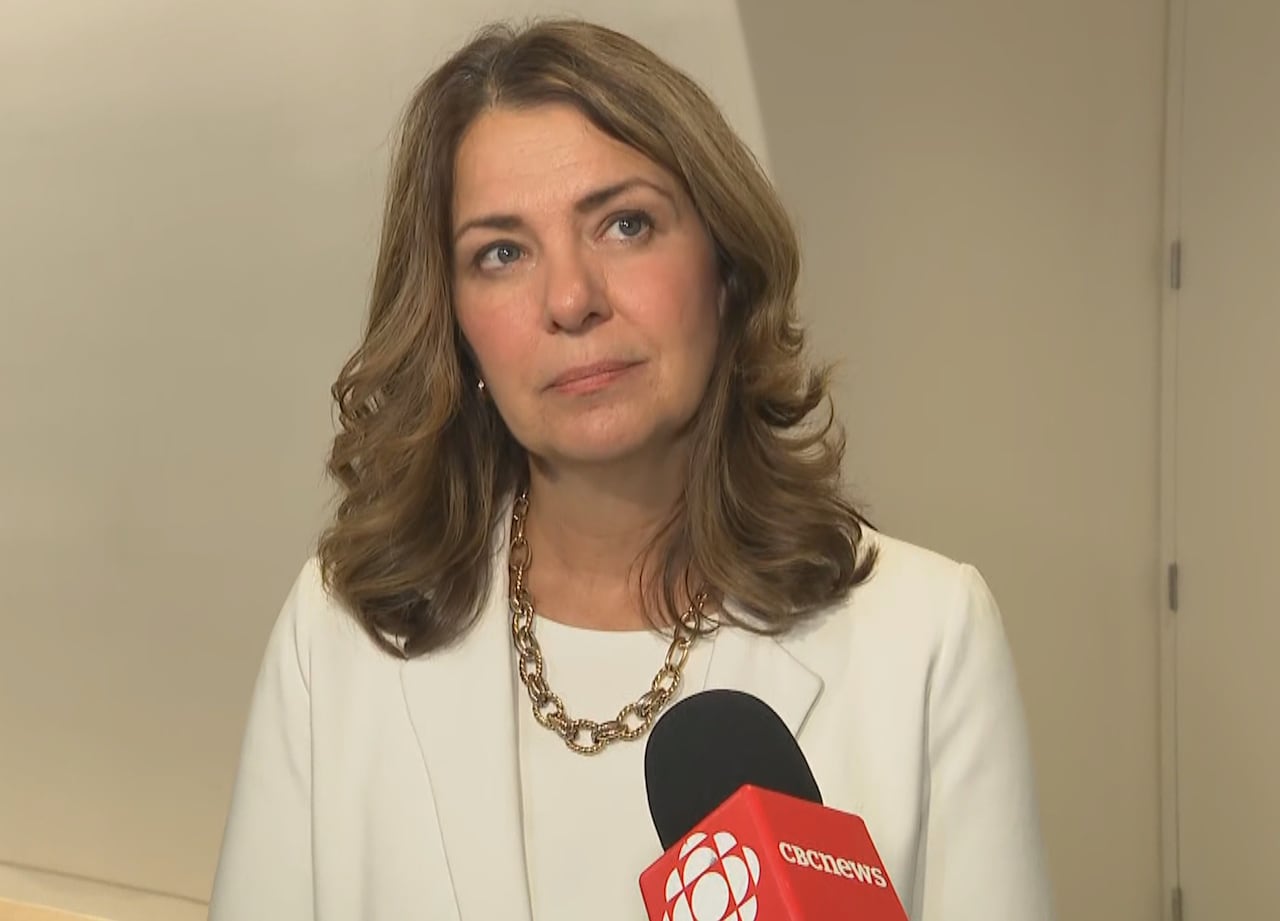 Alberta Premier Danielle Smith, speaking to reporters Wednesday, said U.S. President Donald Trump has been ‘quite interested’ in seeing a reboot of the Keystone XL pipeline. (CBC News)
Alberta Premier Danielle Smith, speaking to reporters Wednesday, said U.S. President Donald Trump has been ‘quite interested’ in seeing a reboot of the Keystone XL pipeline. (CBC News)
Former Alberta premier Jason Kenney, who called for consequences and compensation in the aftermath of Biden revoking the permit for the Keystone XL pipeline in 2021, told CBC News the fact that Keystone was being discussed was “fantastic.”
“I’ve been trying to get people to focus on that because it’s much simpler and less expensive than a West Coast pipeline,” said Kenney. “We’re talking thousands of high-paying jobs, billions of dollars of additional tax revenues for all levels of government.”
Alberta NDP Leader Naheed Nenshi said he has long “liked the Keystone XL pipeline,” and that it could be a bargaining chip with the Trump administration. But he cast doubt on focusing on a pipeline through the United States.
“What we’ve learned is building more export capacity to the U.S., which has proven to be a difficult partner under this administration, is not as important as building pipeline capacity that gets us to [other] export markets,” said Nenshi.
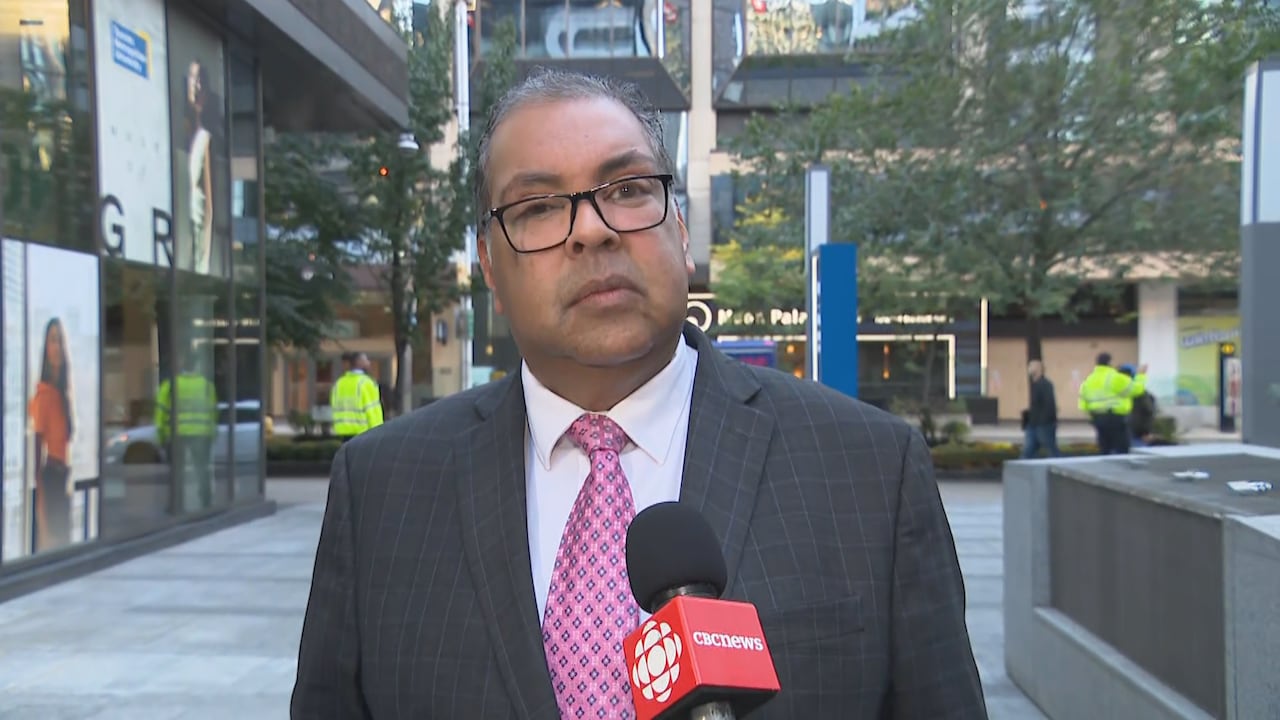 Alberta NDP Leader Naheed Nenshi said he has long ‘liked the Keystone XL pipeline.’ (CBC News)
Alberta NDP Leader Naheed Nenshi said he has long ‘liked the Keystone XL pipeline.’ (CBC News)
In a statement, Conservative Leader Pierre Poilievre said the party was in support of infrastructure like the Keystone XL pipeline.
“We are glad to hear President Trump and his administration express renewed interest in the Keystone XL pipeline. One of the first executive orders he signed in 2017 was the approval of this pipeline,” the statement reads.
“In Canada, Keystone XL was approved under a Conservative government in 2010. Prime Minister Carney should know that he will have the Official Opposition behind him if he does the right thing and gets this crucial project moving.”
WATCH | Conservatives are ‘welcoming renewed interest’ in Keystone XL pipeline, says Scheer: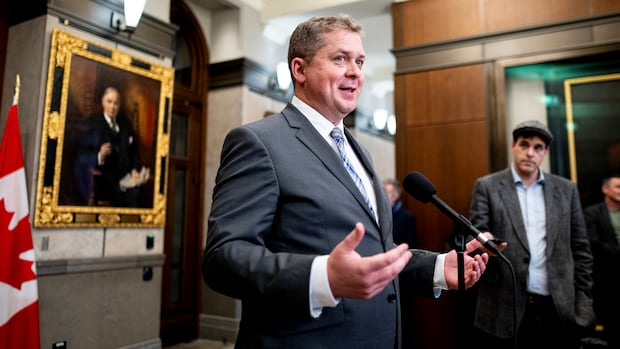
Conservatives are ‘welcoming renewed interest’ in Keystone XL pipeline: Scheer
Opposition House leader Andrew Scheer says he supports the potential renewal of the Keystone XL pipeline project while reiterating the Conservatives’ call to remove regulations on the fossil fuel industry.Environmental regulations, political realities
Heather Exner-Pirot, director of natural resources, energy and environment at the Macdonald-Laurier Institute, said finding a private backer would be “impossible with the current regulations we have right now.”
“The fact that Carney is bringing up Keystone XL to Donald Trump … tells me that Carney will play ball on getting the environment in which a Keystone XL could be built,” Exner-Pirot said. “And that means that the emissions cap would have to go.”
The federal government’s emissions cap, unveiled last fall, aims to limit emissions to 35 per cent below 2019 levels, phasing in the reduction over four years.
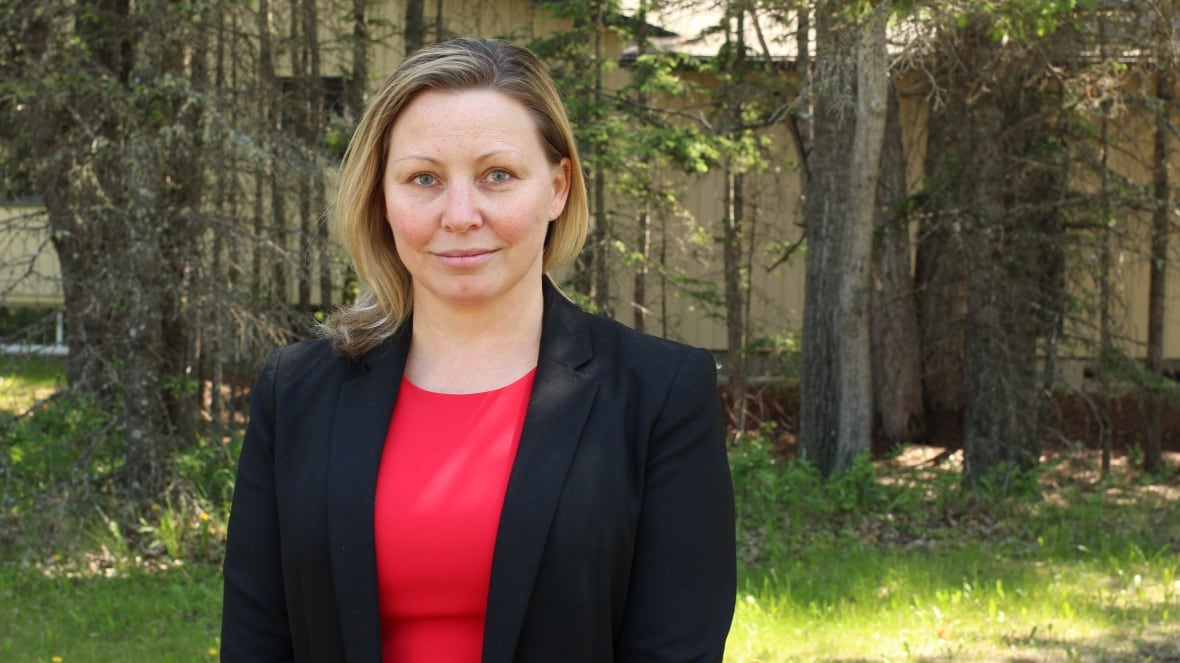 Heather Exner-Pirot, director of energy, natural resources and environment at the Macdonald-Laurier Institute, says current environmental regulations would need to change to find a private backer. (Paula Duhatschek/CBC)
Heather Exner-Pirot, director of energy, natural resources and environment at the Macdonald-Laurier Institute, says current environmental regulations would need to change to find a private backer. (Paula Duhatschek/CBC)
Moving ahead with the pipeline would inevitably lead to pushback from many of the groups that opposed it in the first place.
The U.S.-based Natural Resources Defense Council, an environmental advocacy group, wrote in an email that its arguments against the pipeline have not changed and referred CBC News to a January statement.
“The incoming administration has been lobbing gifts to Big Oil through its executive orders, but this one is negligible in the real world because even the industry has moved on from that project,” the statement reads.
“President Trump has repeatedly said that America does not need Canada’s oil … so we certainly don’t need KXL.”
A lack of continuity
Meanwhile, a University of Minnesota law professor who focuses on energy law says talk of reviving Keystone isn’t surprising given the continued strength of the two countries’ energy partnership.
Despite that, one of the biggest potential hurdles that remains is how the project might fare in the courts, said James Coleman, who previously worked as a lawyer on the original Keystone XL and has published extensively on the project.
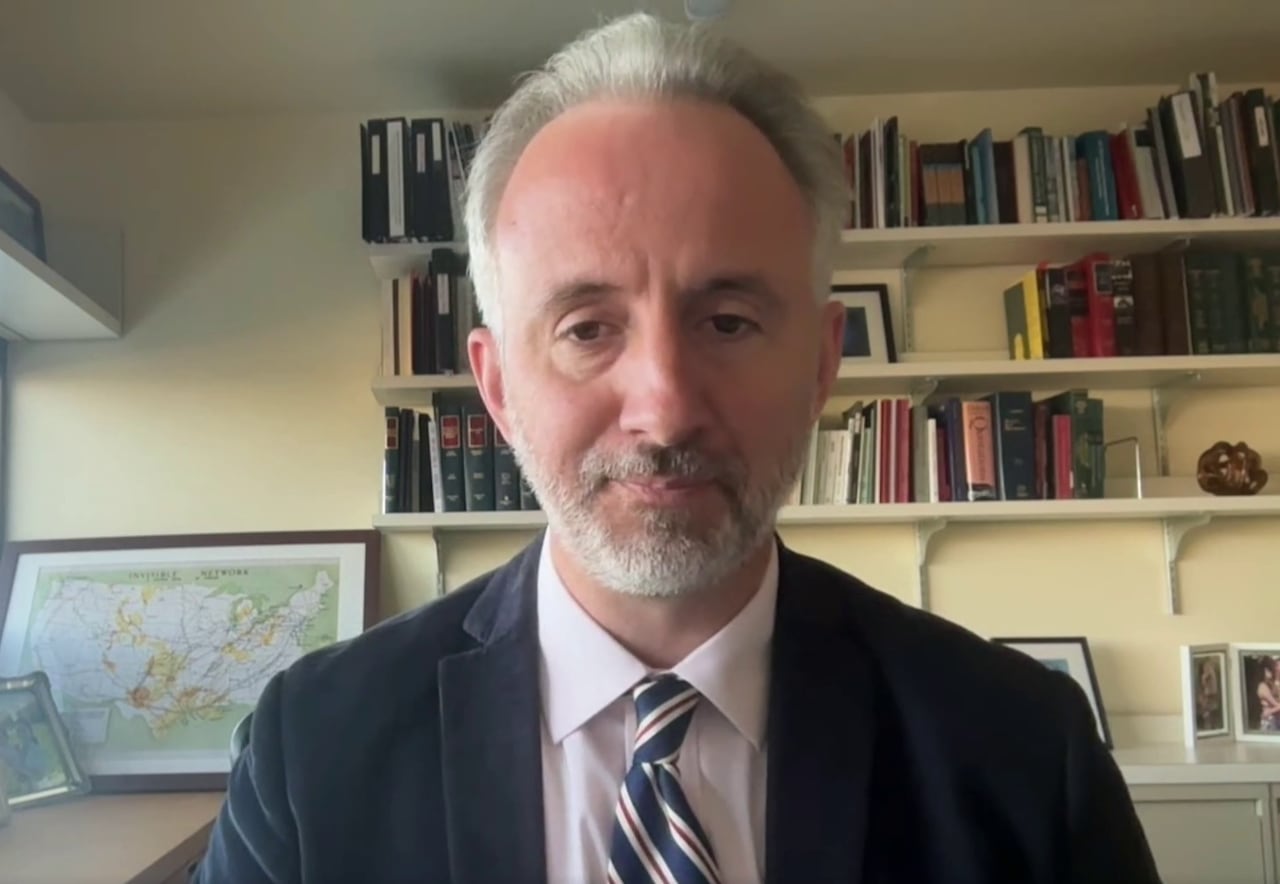 James Coleman, a University of Minnesota law professor who focuses on energy, says the economic case for Keystone XL remains strong, but there are several challenges, including legal and political hurdles, as well as the potential for changes in presidential administrations. (CBC News)
James Coleman, a University of Minnesota law professor who focuses on energy, says the economic case for Keystone XL remains strong, but there are several challenges, including legal and political hurdles, as well as the potential for changes in presidential administrations. (CBC News)
“The law on permitting in the United States is evolving because of Supreme Court decisions that have tried to emphasize the importance of getting projects through court challenges and to completion and, also, because of a variety of permitting reform measures,” he said.
“Things might look better for a pipeline now in those respects.”
Still, the risk remains that a future Democratic president might stop construction on the project before it is completed, Coleman said.
“There’s a limit to what kind of guarantees that any administration can make on behalf of future administrations,” he said.
“You could try and make some kind of guarantees, but we have seen presidents of both parties change things we thought we’d see continuity in. There might be some concern that that would continue.”

